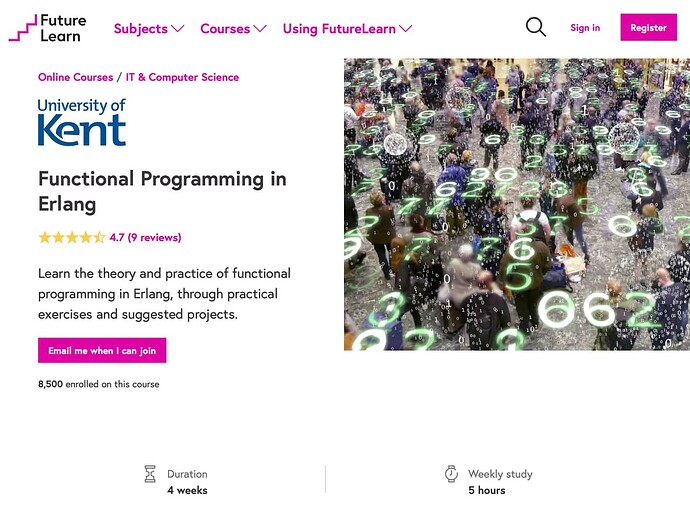Functional programming is increasingly important in providing global-scale applications on the internet.
We combine the theory of functional programming and the practice of how that works in Erlang. The course will also help you if you are interested in Elixir, based on the same virtual machine as Erlang, and will help you get going with any functional language.
Functional programming has been a strength at the University of Kent for the last 30 years. You’ll learn with Simon Thompson – co-author of one of the standard introductions to Erlang, O’Reilly Media’s Erlang Programming.
What will you achieve?
By the end of the course, you‘ll be able to…
Explain why Erlang was developed, how its design was shaped by the context in which it was used, and how Erlang can be used in practice today
Reflect on the design of Erlang, in the context of the rationale for its development, and how it is used in practice today
Produce programs using the concepts of functional programming, including, in particular, recursion, pattern matching and immutable data
Apply knowledge of lists and other Erlang data types in programs
Develop higher-order functions using generic patterns
Who is the course for?
This course is designed for anyone with prior programming experience, who wants to learn more about functional programming and Erlang.
You could be a developer or computing professional seeking to understand and gain experience with this technology; a computer science undergraduate studying functional programming as part of your degree; or a self-taught programmer looking to take your knowledge to the next level.
You can enrol in the above course and take part with other students, but there is a pre-recorded version available on YouTube too:









